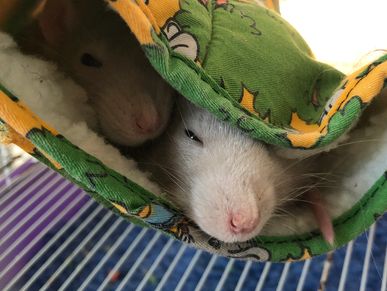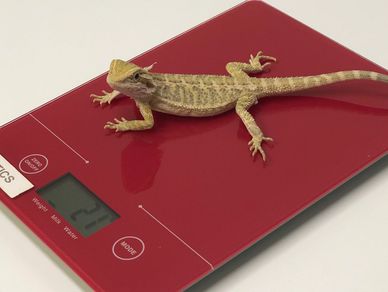Services
Consultations
Diagnostic testing
Diagnostic testing

Consultations including health checks, behaviour and nutrition advice, vaccinations, microchipping, evaluation of sick exotic pets
Diagnostic testing
Diagnostic testing
Diagnostic testing
Comprehensive range of diagnostic tests including laboratory tests (blood tests, cytology, biopsy), radiographs (x-rays), CT scan, ultrasound and minimally-invasive endoscopic procedures
Medical care
Diagnostic testing
Infectious diseases

Management of dermatologic (skin), endocrine (hormonal), reproductive, cardiac, respiratory, gastrointestinal and liver, kidney and urinary tract, neurologic, neoplastic (tumour, cancer), infectious diseases and more
Infectious diseases
Sedation, anaesthesia & analgesia
Infectious diseases

Testing and management of viral, bacterial, fungal and parasitic diseases
Sedation, anaesthesia & analgesia
Sedation, anaesthesia & analgesia
Sedation, anaesthesia & analgesia

Using specialised exotics anaesthetic equipment and the latest guidelines for exotics anaesthesia and pain relief
Dentistry
Sedation, anaesthesia & analgesia
Sedation, anaesthesia & analgesia

Corrective burring of overgrown teeth and spurs, tooth extractions, treatment of dental-associated abscesses, apicoectomies, dental cleaning
Surgery
Emergency & critical care
Hospitalisation
Range of surgical procedures, including desexing, with magnification and radiosurgery capabilities
Hospitalisation
Emergency & critical care
Hospitalisation
Hospital ward with rabbit-friendly cages, and intensive care incubators
Emergency & critical care
Emergency & critical care
Emergency & critical care

Management of emergency and critical cases, including fluid therapy, oxygen therapy, air sac catheters, thoracostomy tubes, blood transfusions, centesis and more
Health checks
Why are health checks important and what is included in a health check?
Exotic pets are very good at hiding signs of illness. Regular health checks allow illnesses to be detected early. It also allows for any improvements to be made to your pet's husbandry and diet, to ensure optimal health and reduce the risk of future health problems.
- Assessment of your pet's environment. If this is your first visit to AVES, you will be asked to complete a questionnaire about your pet's home environment and diet
- Assessment of your pet's diet
- Complete physical examination
- Weight check
- Faecal examination to check for parasites and other infections
- Discussion of any behavioural problems or other concerns you may have
- The need for any additional testing or procedures, such as blood tests, infectious disease testing and microchipping, will also be discussed and tailored to your pet
- A tasty treat for your pet!

Vaccinations
Rabbit & ferret vaccinations
Rabbits are susceptible to the highly contagious and fatal disease caused by a Calicivirus, known as the rabbit haemorrhagic disease virus (RHDV). There are 2 distinct types of the virus, RHDV1 and RHDV2 which are currently present in Australia and affect pet rabbits.
At AVES, we recommend vaccinating rabbits against both strains using the Filavac® vaccine.
Ferrets are susceptible to the fatal canine distemper virus caused by a paramyxovirus.
At AVES, we recommend vaccinating ferrets against distemper using a multivalent canine vaccine shown to be safe in ferrets. Not all canine vaccines are safe in ferrets. There is currently no monovalent ferret vaccine available in Australia.

Anaesthesia
Exotics anaesthesia often brings a lot of fear to pet owners, and this is understandable. There are many “horror stories” about pets undergoing anaesthesia for routine procedures and not waking up from the anaesthetic.
What is anaesthesia? Anaesthesia creates a state of unconsciousness, muscle relaxation, amnesia and pain relief, and is used in animals and people to allow surgeries and other painful procedures to be performed. During anaesthesia, the normal physiologic processes, such as heart rate, blood pressure and breathing, can become depressed. With the correct combination of anaesthetic agents and monitoring equipment, these can be controlled. Over the years, there have been significant improvements in patient safety when it comes to anaesthesia and the risks of anaesthesia are very low.
In dogs and cats, anaesthetic mortality risk is less than 1%. In exotic pets, mortality rates have been reported for rabbits, rats, guinea pigs and birds, and range from 1% to 4%. The reason for this higher % is largely due to differences in their anatomy and physiology, which are misunderstood, and underlying illnesses that can go undetected.
At AVES, we understand the unique needs of our exotics patients, and our staff are highly trained in managing the anaesthetics of exotics, from routine to complex, from admission to discharge. We take every precaution to reduce the risks.
On admission, the patients are examined to ensure they are fit to undergo an anaesthetic and if needed, blood tests are performed to check for illnesses that may affect their anaesthetic safety. The patients are set up comfortably in a stress-free environment. The anaesthetic drug protocol is tailored to the needs of the patient and the procedure being performed.
During the anaesthetic, the patients are monitored continuously.
• Endotracheal intubation and ventilation: an endotracheal tube allows control of the airway, monitoring of ventilation and provision of ventilation if the patient is not breathing adequately.
• Oxygenation: oxygen is delivered, and haemoglobin saturation is continuously monitored, along with the heart rate.
• Blood pressure: adequate blood pressure is essential to deliver blood to vital organs and is continuously monitored.
• Intravenous catheterisation: IV catheters are placed to deliver intravenous fluids and any medications necessary. It also allows prompt delivery of emergency drugs if required.
• Thermal support: the smaller the patient, the faster they lose body heat, which can result in anaesthetic complications. Patients are kept warm with warming devices and body temperature is continuously monitored.
• ECG (electrocardiography): electrical activity of the heart is monitored for arrhythmias.
• Multi-modal analgesia: the pain pathway has many components and pain can adversely affect anaesthetic recovery and the welfare of the patient. Pain relief is provided using a multi-modal approach, ensuring the pain pathway is intercepted at multiple steps.
Once the anaesthetic is finished, patients are monitored until they are recovered, ensuring all their vital parameters have returned to normal and their pain is controlled.
We are happy to discuss any questions or concerns you may have about your pet undergoing anaesthesia.
Anaesthesia in exotics (pdf)
DownloadSurgery
We perform a range of surgeries on all exotics, including:
- desexing (ovariohysterectomy, ovariectomy)
- caesareans (including egg removal in egg-laying species)
- lump (tumour, abscess, cyst) removal (lumpectomy)
- rabbit ear surgeries (ear canal resection, bulla osteotomy)
- rhinotomy and rhinostomy
- eye removal (enucleation, bird evisceration), eyelid surgeries
- exploratory laparotomy/coeliotomy
- hernia repair
- cystotomy (eg. bladder stone removal)
- gastrointestinal tract surgeries (intestinal obstruction, foreign body removal, resection)
- liver and gall bladder surgeries
- amputations
- endoscope-assisted surgeries
- fracture repair
To ensure the highest level of safety for exotics surgeries:
- Surgeries are performed under magnification for improved precision.
- Radiosurgery is used to minimise blood loss without damaging the surrounding tissue (this is different to cautery).
- Anaesthesia is monitored by a dedicated nurse. Click here for more information.
Desexing
Dogs and cats are routinely desexed for health and behavioural reasons. In exotics, there are also many benefits to desexing.
- Female rabbits have a high risk of developing uterine and mammary cancer. In some breeds, 60% of undesexed adult female rabbits over 4 years of age are affected.
- Female rats have a high risk of developing mammary tumours. Desexing can reduce this risk by 95%.
- Male guinea pigs commonly develop faecal impaction, which can be reduced by desexing.
- Desexing will prevent breeding and can reduce fighting so that individuals can be kept in pairs or social groups.
- Desexing can reduce the incidence of undesirable behaviours.
At AVES, patients undergoing desexing surgery receive intravenous fluids and take-home pain relief. Click here for information about exotics anaesthesia. We are happy to discuss any questions you may have about desexing your pet.

Endoscopy
What is endoscopy?

Endoscopy means to look inside. A small camera is used to look inside organs or body cavities (through key hole incisions) under magnification, and small instruments are used to take samples for testing (eg. biopsies) or remove foreign material/objects, making it minimally-invasive.
What endoscopic procedures can be performed in exotic pets?
With technological advances and ongoing research, there are numerous endoscopic procedures that can be performed in exotic pets, even in some of the smallest patients. Common procedures include:
- stomatoscopy (mouth)
- otoscopy (ear)
- rhinoscopy (nose)
- tracheoscopy (wind pipe)
- gastroscopy (stomach)
- coelioscopy (body cavity)
- cloacoscopy (cloaca)
- cystoscopy (bladder)
Copyright © 2025 Avian & Exotics Service - All Rights Reserved.
This website uses cookies.
We use cookies to analyze website traffic and optimize your website experience. By accepting our use of cookies, your data will be aggregated with all other user data.